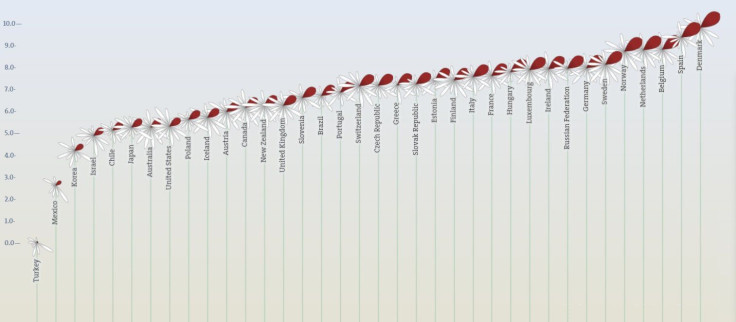
A report from the Organization for Economic Cooperation and Development (OECD) ranked its 34 member countries on work-life balance, leaving Brazil in 21st place (and 1st place in terms of Latin American countries), Mexico in 33rd and last place amongst Latin American countries, despite the progress it's had over the last decade and the United States in 29th place within the category. The report looks specifically into the number of employees who work 50-hour weeks or more, and lack time for leisure, social activities and personal care. Additionally, the report highlights gender inequality as another indicator of a poor work-life balance in a country.
As for the rest of the world, Denmark came in first place with people spending 5 to 6 hours a day on their personal lives and Turkey, where over 45% of workers have over 50-hour long work weeks, came in last place. In terms of gender equality, men tend to have more leisure time as women do more unpaid work around the house.
It’s true that American workers in the United States have become more productive but wages have not increased proportionally as the median household income has failed to keep up pace with the country’s economic output. Working long hours also affects the physical and mental health of employees, as the risk of depression, obesity and heart problems heightens considerably when being deskbound for long periods of time.

© 2025 Latin Times. All rights reserved. Do not reproduce without permission.





